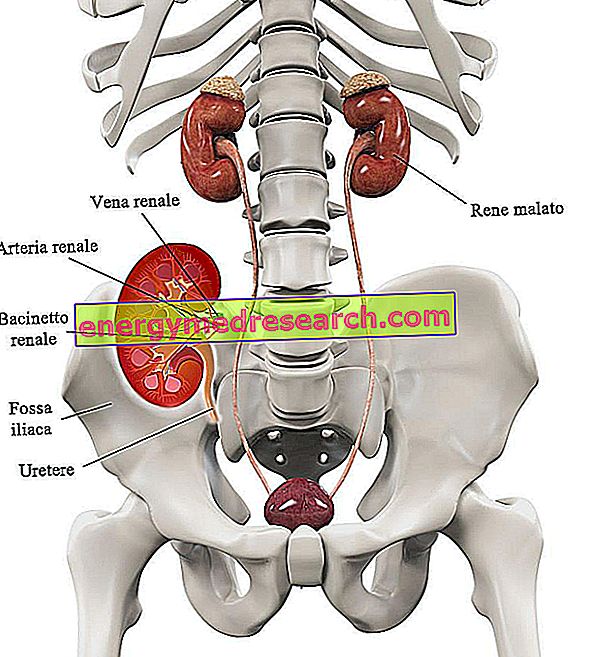SOLU-MEDROL ® is a drug based on methylprednisolone sodium succinate
THERAPEUTIC GROUP: Non-associated corticosteroids
IndicationsAction mechanismStudies and clinical effectiveness Usage and dosage instructionsWarnings Pregnancy and lactationInteractionsContraindicationsUndesirable effects

Directions SOLU-MEDROL ® Methylprednisolone
SOLU-MEDROL ® is used in the treatment of inflammatory and allergic diseases for which corticosteroid therapy is indicated.
This medicine can also be used as a hormone replacement therapy in case of acute adrenocortical insufficiency also in conjunction with mineralocorticoids.
Mechanism of action SOLU-MEDROL ® Methylprednisolone
The therapeutic importance of SOLU-MEDROL ® is due to its active ingredient methylprednisolone, a synthetic corticosteroid with marked anti-inflammatory activities, which administered intravenously or intramuscularly can carry out its therapeutic capacity in a very short time, considering reaching the maximum blood peak in only 20 minutes.
Methylprednisone is linked to plasma proteins and distributed to various cells, especially endothelial cells, and is able to induce the expression of lipocortin, an enzyme capable of inhibiting phospholipase A2 and reducing the availability of arachidonic acid, the starting substrate for high-power mediators. inflammatory such as prostaglandins, leukotrienes and prostacyclins.
Turning off the upstream inflammatory process guarantees, therefore, a lower recruitment of inflammatory cells safeguarding the tissue in question from the induced damage and protecting it from the excessive response.
Although methylprednisolone exhibits a decidedly more intense anti-inflammatory activity than those of prednisolone, the mineralocorticoid activity decreases significantly, thus reducing the risk of potential side effects associated with cortisone therapy.
Studies carried out and clinical efficacy
1. CORTICOSTEROIDS AND ACUTE POLOMITE
The optimal management of severe pneumonia is a question of how important it is to develop a prognosis that is as good as possible. Immediate steroid therapy in the initial phase of the pathology, seems to be able to guarantee an adequate control of the symptomatology avoiding serious repercussions.
2. METHYLPREDNSIOLONE IN THE TREATMENT OF INFANT SPASMS
Treatment of infantile spasms with methylprednisolone has been shown to be particularly effective in ensuring the remission of the disease in 83% of patients treated within a few days of starting treatment, without serious side effects.
3. METHYLPREDNISOLONE AND MULTIPLE SCLEROSIS
The therapeutic efficacy of methylprednisolone in the treatment of multiple sclerosis seems to be associated with the ability of this drug to significantly reduce the concentrations of TNF alpha, cytokine with marked pro-inflammatory activities. In contrast, patients resistant to intravenous methylprednisolone therapy do not exhibit the same effect.
Method of use and dosage
SOLU-MEDROL ® powder and solvent for solution for injection, 40mg double-chamber vials of methylprednisolone per ml and 125 mg / 2ml or freeze-dried falcons of 500mg / 8ml, 1000mg / 16ml and 2000mg / 32ml.
The particular formulation of methylprednisolone in SOLU-MEDROL ® makes the formulation of the correct dosage to the specialized quantum.
The therapeutic range, in fact, varies considerably depending on the pathology, the clinical picture of the patient, the therapeutic objective and above all the acute or chronic use made of this medicine.
Medical supervision is therefore essential both in the initial phases to set the correct dosage, and during the entire therapeutic course to assess its efficacy and eventually correct the dose.
Warnings SOLU-MEDROL ® Methylprednisolone
Corticosteroid hormone therapy requires medical supervision both in the initial phase, useful for defining the appropriate dosage, and during the entire treatment period to assess the adequacy of the therapy and the possible presence of side effects.
The suspension of therapy or the adjustment of the dosage could in fact become necessary in the event of severe stress, recurrent infections, hepatic, renal and cardiovascular diseases or in the absence of an anti-inflammatory effect able to alleviate the symptoms.
It is useful to remember that the administration of SOLU-MEDROL ® as well as that of other corticosteroid drugs, could aggravate the clinical picture of patients suffering from diabetes, neurological and psychiatric diseases, compromising the normal development of the skeletal and muscular apparatus and rendering strategies ineffective immunizing.
The "nervous" side effects of methylprednisolone could also make it dangerous to use machinery, drive vehicles or all those activities that require a perceptive and intellectual commitment.
PREGNANCY AND BREASTFEEDING
The absence of adequate clinical trials currently does not allow defining the safety profile for the health of the methylprednisolone fetus when taken during pregnancy.
In fact, the ability of this active principle to pass the placental barrier and to be secreted in breast milk exposes the fetus and the infant to potential dangers, the first of which is hyposurrenalism.
Therefore the intake of SOLU-MEDROL ® in pregnancy should be carried out only in cases of actual need and under close specialist medical supervision.
Interactions
The biological and therapeutic efficacy of methylprednisolone can partly be compromised by the concomitant intake of rifampicin, antiepileptics and barbiturates and enhanced instead by erythromycin, ketoconazole and troleandromycin.
In contrast, methylprednisolone can reduce the therapeutic activity of oral anticoagulants, salicylates, hypoglycemics, psychotropic drugs such as anxiolytics and sympathetic mimetics, thus requiring a further adjustment of the dosage.
Contraindications SOLU-MEDROL ® Methylprednisolone
SOLU-MEDROL ® is contraindicated in case of systemic fungal infections and in case of hypersensitivity to its active ingredient and its excipients.
The administration of corticosteroids could aggravate the clinical picture of diabetic, hypertensive patients suffering from neurological and psychiatric diseases.
Undesirable effects - Side effects
The cortisone therapy carried out for prolonged periods of time exposes the patient to important risks for his health, such as to seriously compromise the functionality of entire organs and systems.
Among the most common adverse reactions it is possible to recall those affecting the osteo-muscular apparatus, characterized by spontaneous fractures, myopathies and osteoporosis; gastro-intestinal, with increased risk of peptic ulcers; neurological with vertigo, headache, behavioral changes and depressive manifestations; cardiovascular with the appearance of hypertension and congestive heart failure; endocrine-metabolic dangerous especially during the growth phases due to the negativization of the nitrogen balance, due to alterations affecting glucose metabolism and hydro-electrolyte balance.
Note
SOLU-MEDROL ® can be sold only under medical prescription.
The use of SOLU-MEDROL ® without therapeutic need during sports competitions, constitutes doping.



